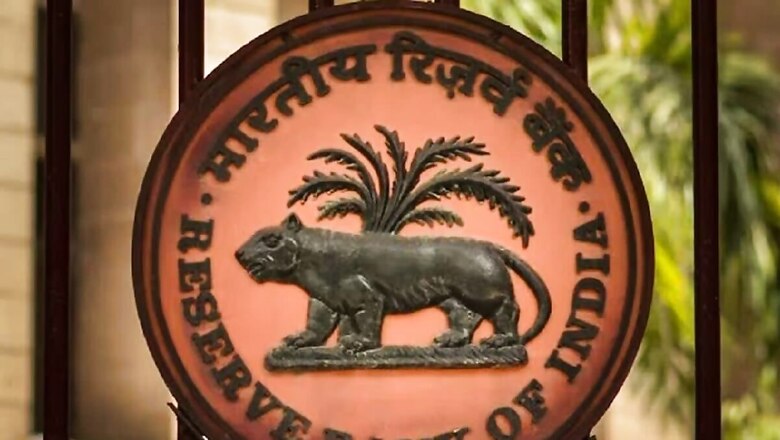
views
The Reserve Bank of India’s (RBI) decision to transfer a record Rs 2.11 lakh crore surplus to the central government for 2023-24 would help boost the Centre’s resource envelope in FY2025, easing the fiscal deficit by 0.4 per cent, allowing for enhanced expenditures and a sharper fiscal consolidation, according to economists.
The amount of Rs 2.11 lakh crore, which is more than double what was paid in the previous year, offers a much-needed shot in the arm for government finances. It allows for fiscal consolidation, potentially lower borrowing needs, and increased spending options, according to economists. The dividend payout was Rs 87,416 crore for 2022-23.
The economists attribute this windfall to a confluence of factors. Upasna Bhardwaj, chief economist at Kotak Mahindra Bank, said higher interest rates both on domestic and foreign securities, significantly high gross sale of forex exchange along with limited drag from liquidity operations compared to the previous year, have probably led to such a whopping dividend.
“Positively, this comes with the contingency risk buffer being kept at the higher end of the statutory requirement. We expect such a windfall to help fiscal deficit ease by 0.4 per cent in FY25,” Upasna Bhardwaj added.
This translates to more breathing room for the government, potentially allowing for lower borrowing in the upcoming budget, she added.
Aditi Nayar, chief economist at ICRA, said, “The higher-than-budgeted RBI surplus transfer would help to boost the GoI’s resource envelope in FY2025, allowing for enhanced expenditures or a sharper fiscal consolidation than what was pencilled into the Interim Budget for FY2025.”
The surplus amount of Rs 2.11 lakh crore far exceeds the Rs 1.5 trillion budgeted for dividends and profits in the interim budget.
She, however, added that this unexpected windfall creates greater spending power for the government, but the timing poses a challenge. With only eight months remaining in the fiscal year after the final budget is approved, efficiently utilising such a large sum could be difficult.
“Increasing the funds available for capex would certainly boost the quality of the fiscal deficit. However, the additional spending may be difficult to be incurred within the 8-odd months left after the Final Budget is presented and approved by Parliament,” Nayar said.
The RBI’s decision also signifies its confidence in the Indian economy’s resilience.
“With the revival in economic growth in FY 2022-23, the Contingent Risk Buffer (CRB) was increased to 6.00 per cent. As the economy remains robust and resilient, the Board has decided to increase the CRB to 6.50 per cent for FY 2023-24,” the RBI said.
On Wednesday, the RBI approved a Rs 2.11 lakh crore dividend payout to the central government for 2023-24, more than double the amount it paid for the previous 2022-23 financial year. The decision was taken at the 608th meeting of the Central Board of Directors of the Reserve Bank of India held under the chairmanship of Governor Shaktikanta Das.




















Comments
0 comment